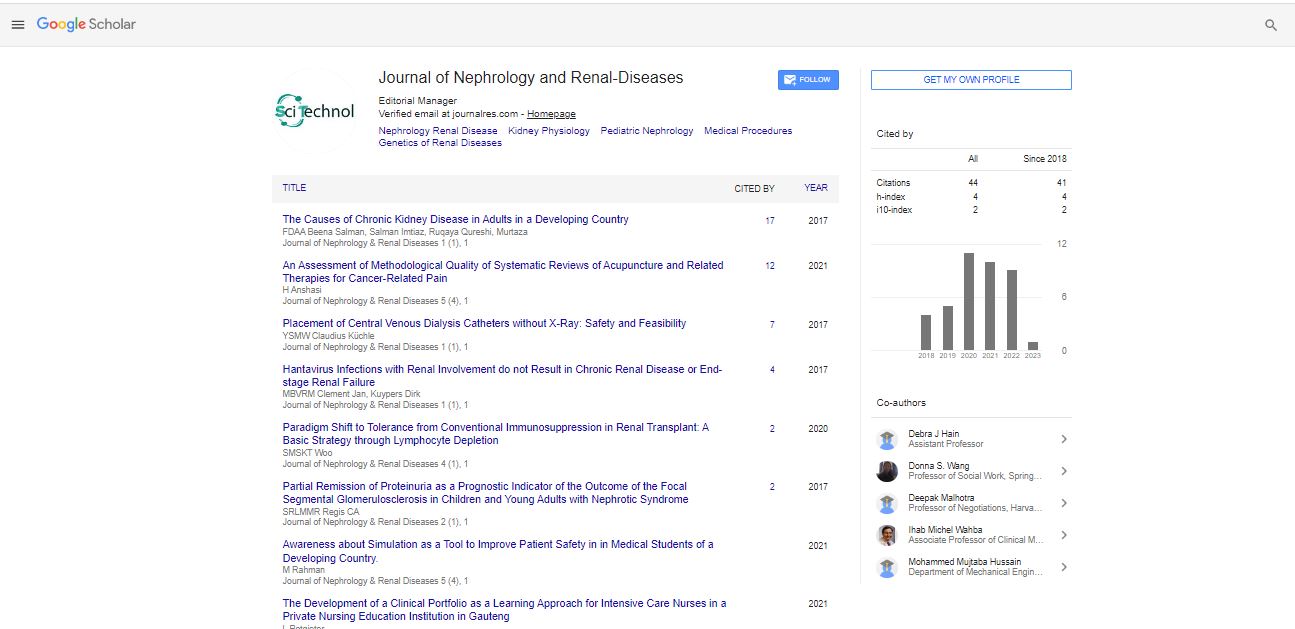Interchangeability: Can this be established without switching clinical trial?
Rafiq Islam
Celerion Inc., U
: J Nephrol Ren Dis
Abstract
The Biologics Price competition and Innovation Act of 2009 (BPCIA) created an abbreviated pathway for the FDA licensure of biologics that are “biosimilar” or “interchangeable” to a USA-approved reference product. . Under the act, and based on subsequent FDA guidances, a biosimilar is defined as a biologic that is highly similar to the reference product, and there are no clinically meaningful differences between the two products in terms of safety, purity and potency. A biosimilar is considered interchangeable if it can be expected to produce the same clinical result as the reference product. It is also expected that the risk, in terms of safety or diminished efficacy, of switching the two products in the same patient is no greater than when administering the reference product without switching. It should be noted that only an interchangeable product may be substituted for the reference product without the intervention of the prescribing health care provider. As the name of BPCIA suggests, the original intent of this regulation was to spur innovation which in turn will and help bring these life-saving biologics to market quickly and in a cost-effective manner. Reviews of the approaches used for currently approved biosimilars suggest that most manufacturers utilize traditional technologies and processes to bring these drugs to market. The result is a long approval time and modest savings. In order to realize the true benefit from biosimilar or interchangeable products, we need innovation. We also need, as stated by Dr. Steven Kozlowski, M.D. Director, Office of Biotechnology Products, FDA, “cultural and cognitive transformation.” This presentation will make a case for using fingerprinting-like biosimilarity tool combined with a predictive immunogenicity solution using state of the art data modeling to demonstrate the interchangeability of an approved biosimilars product without any additional clinical trial. A case study using bevacizumab will be utilized to demonstrate biosimilarity and interchangeability.
Biography
Rafiq Islam is the Director of Bioanalytical Services at Celerion Inc. In his current role he is responsible for the scientific and operational leadership for both small and large molecule bioanalysis. He is also responsible for developing and executing a strategic plan to deliver scientific, operational and service excellence to Celerion clients. Previously, Rafiq was the Scientific Director for Biopharma Services at EMD Millipore. He held similar positions at Covance and Huntingdon Life Sciences. He has a BS Biology and MS in Data Mining. He has 14 years of industry experience developing bioanalytical assays for biotechnology and pharmaceutical clients.
E-mail: rafiqul.islam@celerion.com
 Spanish
Spanish  Chinese
Chinese  Russian
Russian  German
German  French
French  Japanese
Japanese  Portuguese
Portuguese  Hindi
Hindi 
